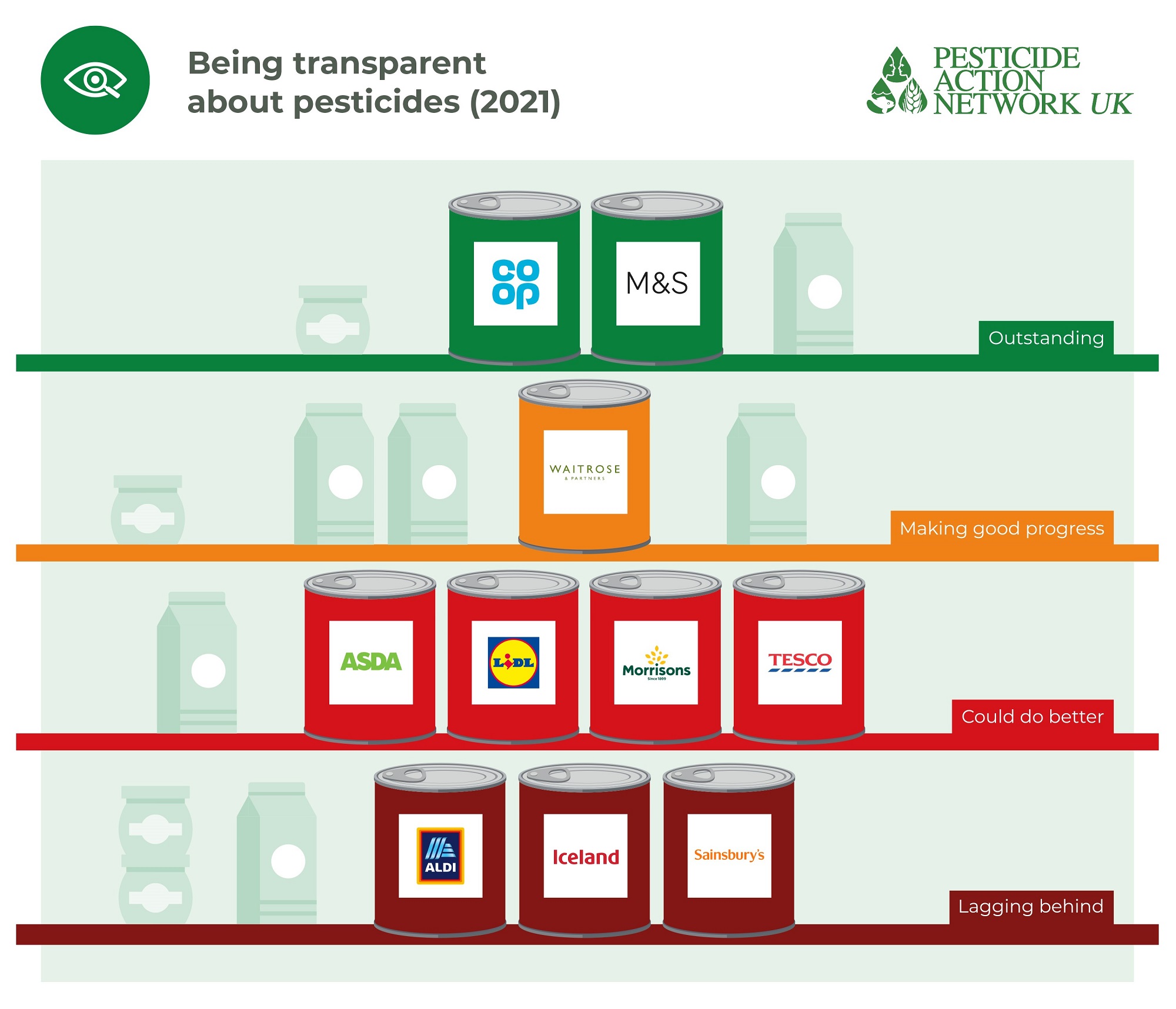
In 2019, UK supermarkets were underperforming on transparency with regards to pesticides in their supply chains. Only a few supermarkets made their pesticide policies publicly available, and not a single one published the results of its residue testing programme. As a result, UK shoppers were unable to find out which pesticides they were ingesting in food.
Since then, UK supermarkets have made great progress in becoming more transparent. Most supermarkets now publish their full pesticide policy as well as the lists of specific pesticides that are monitored, restricted and prohibited from use within their global supply chains. Co-op and M&S in particular have now implemented all of PAN UK’s recommendations on transparency. They are currently the only two of the top ten UK supermarkets to publish results from their residue testing programmes which are sufficiently detailed to enable customers to make informed decisions about which produce they buy.
However, despite this overall improvement within the sector, some supermarkets still have no (or very limited) publicly available information on their approach to pesticides and continue to keep their customers in the dark.
The need for transparency also applies to positive actions that supermarkets are taking to reduce pesticide use. For example, a number of supermarkets have created mechanisms to enable their suppliers to share examples of best practice so they can learn from each other’s experiences of reducing pesticide use. However, this information is often not shared publicly. This holds back the entire sector which could be moving forward together to reduce pesticide-related harms.
While some of the sector’s enduring secrecy is motivated by ‘commercial confidentiality’, actually a larger driver seems to be that some supermarkets simply don’t want to talk about pesticides because the topic worries their customers. However, shoppers’ attention on how their food is produced has grown hugely in the past few years and continues to rise. The situation where supermarkets can just keep quiet and avoid scrutiny on pesticides in their supply chain is no longer viable. In fact, pesticides have never been so unpopular and talking about the work they are doing to reduce use could be an excellent boost to a supermarket’s ethical credentials.










